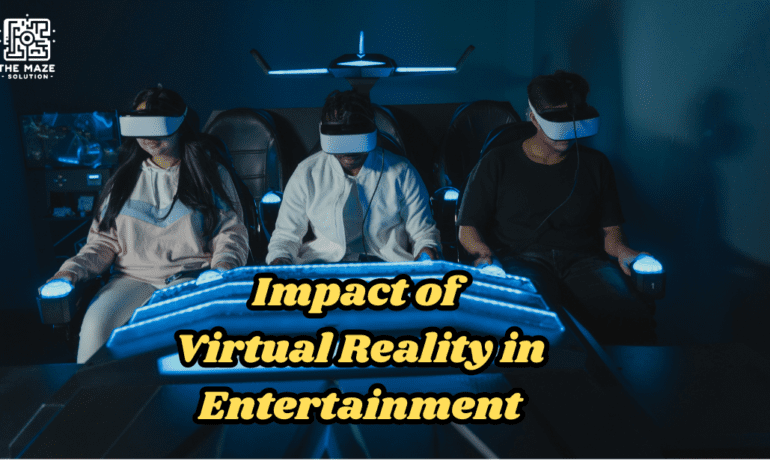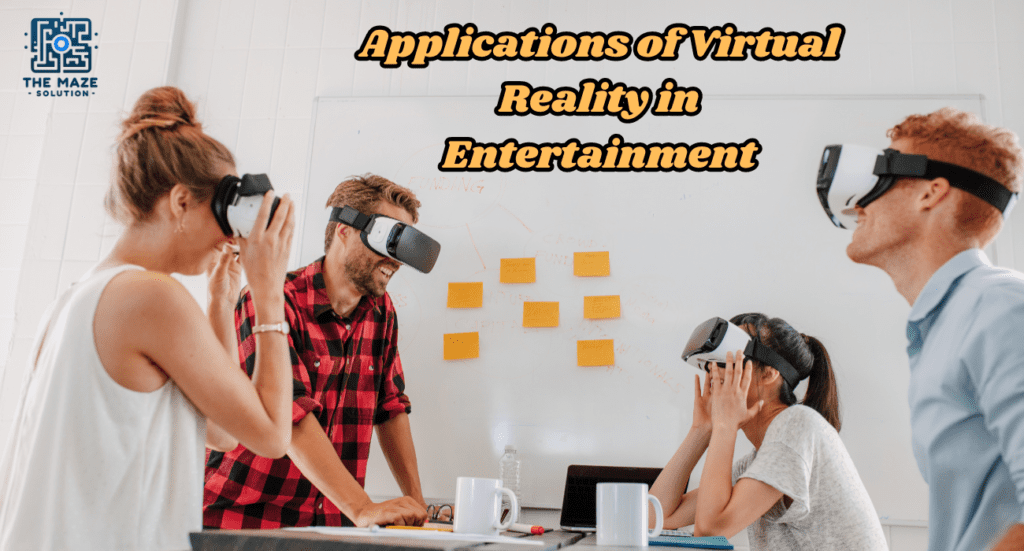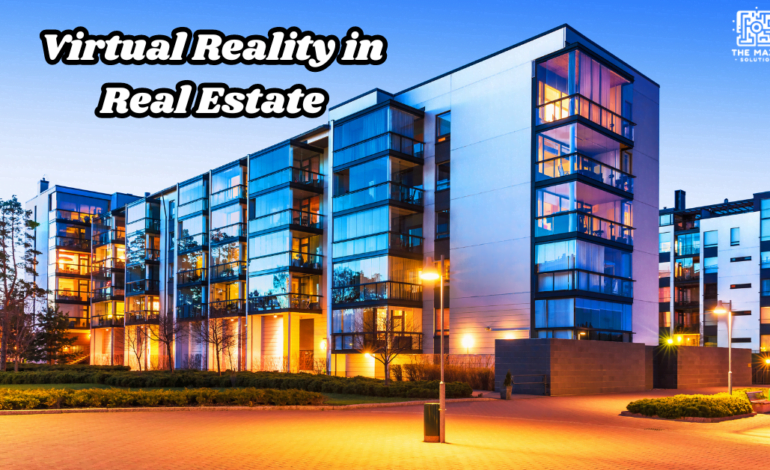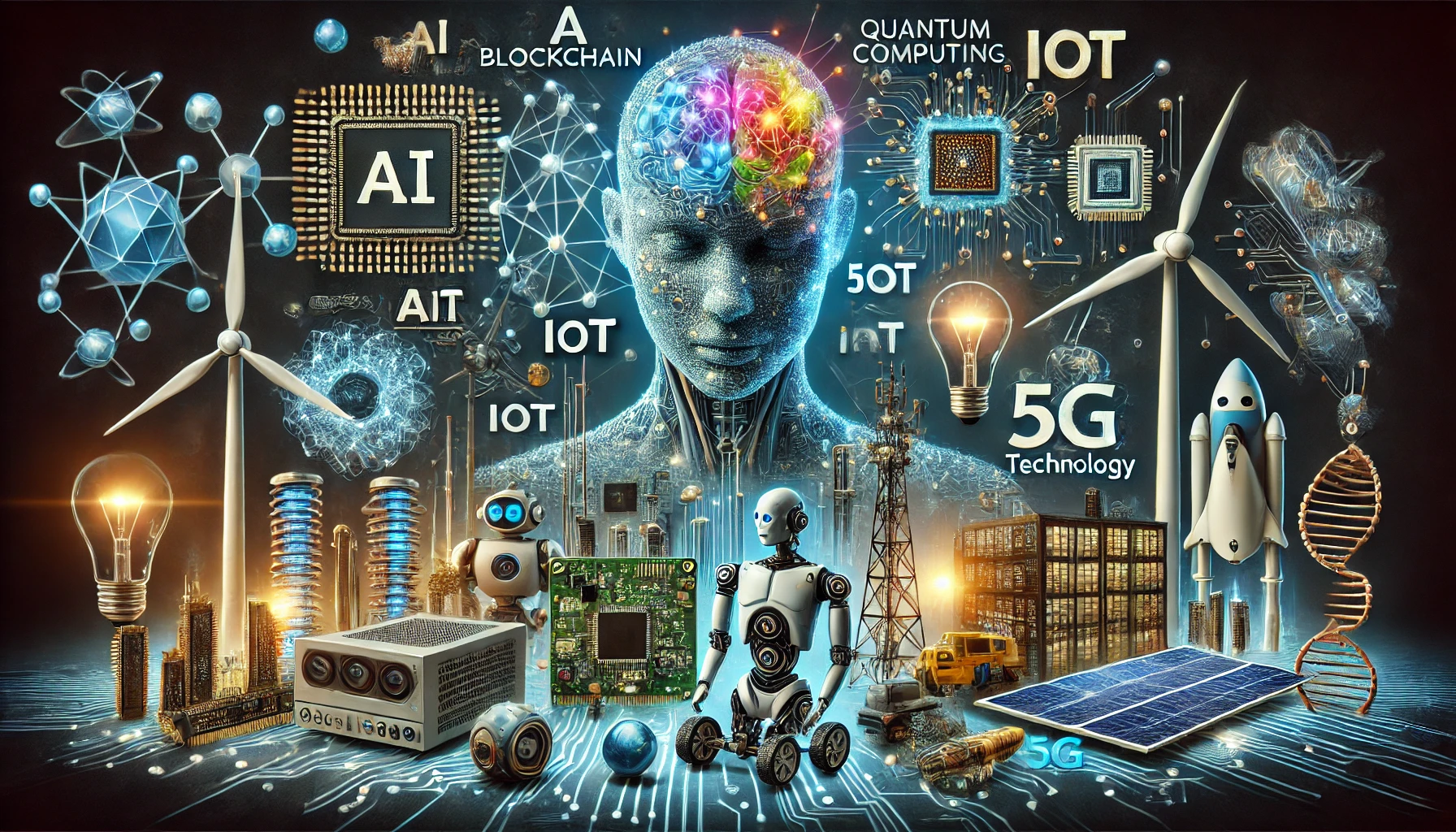Exploring the Impact of Virtual Reality in Entertainment : Applications and Benefits

Introduction
Virtual Reality in Entertainment (VR) is no longer a futuristic concept; it’s a present-day phenomenon transforming how we experience entertainment. From video games to movies, VR offers immersive experiences that were once deemed impossible. The entertainment industry is witnessing a seismic shift as VR technology redefines audience engagement and storytelling. This blog aims to explore the various applications and benefits of VR in entertainment and its profound impact on the industry.
Understanding Virtual Reality in Entertainment
What is Virtual Reality in Entertainment?
Virtual Reality (VR) is a groundbreaking technology that transports users into a computer-generated environment, offering a fully immersive experience that engages multiple senses. Unlike traditional screens that simply display content, VR creates a three-dimensional, interactive world where users feel as though they are truly “inside” the experience. This is achieved through the use of VR headsets and motion sensors, which track a user’s movements and adjust the virtual environment accordingly, creating a seamless and engaging interaction with the digital world.
In the context of Virtual Reality in entertainment , VR represents a significant shift from conventional forms of media. Traditional entertainment—such as watching a movie, playing a video game, or attending a concert—typically involves passive consumption, where the audience observes but does not interact directly with the content. VR, however, changes this dynamic by placing users at the center of the action, allowing them to interact with and influence the virtual environment around them.
Evolution of VR in Entertainment
The journey of VR in entertainment began with basic simulations that offered a glimpse of what immersive experiences could be. Early VR systems were limited by technology, providing rudimentary visuals and limited interactivity. However, as technology advanced, so too did the capabilities of VR. Modern VR experiences are far more sophisticated, offering high-definition visuals, spatial audio, and responsive haptic feedback that mimic real-world sensations. This evolution has enabled VR to move from a niche novelty to a mainstream form of entertainment.
Today, VR is being used across various sectors of the entertainment industry:
- Gaming: VR gaming is perhaps the most well-known application, where players can enter virtual worlds and interact with them as though they were real. Games designed for VR provide a level of immersion that traditional gaming cannot match, making players feel as though they are truly part of the game world.
- Cinema: VR is also revolutionizing the way we watch movies. Instead of simply viewing a film on a screen, VR in entertainment allows viewers to step inside the movie, experiencing scenes from within the environment itself. This immersive storytelling technique offers a new way to experience narratives, making the viewer feel like a participant rather than a mere spectator.
- Live Events: VR in entertainment is breaking down the barriers of physical space by enabling people to attend live events, such as concerts or sports games, from the comfort of their own homes. Through VR, users can experience these events as if they were there in person, complete with the ability to look around the venue and feel the energy of the crowd.
The Significance of VR in Entertainment
The impact of VR in entertainment extends beyond just providing a new way to consume content; it is reshaping the entire industry. By offering a more engaging and interactive experience, VR is enhancing the emotional connection between the audience and the content. This deep level of engagement can create more memorable and impactful experiences, whether it’s the thrill of a VR game, the emotional journey of a VR film, or the excitement of attending a live concert in a virtual space.
Moreover, VR in entertainment is democratizing entertainment by making it more accessible. For instance, people who might not be able to attend a live concert due to geographical or financial constraints can still enjoy the event in a virtual setting. This increased accessibility is opening up new opportunities for content creators and audiences alike.
VR in Entertainment A Technological Revolution
VR technology has revolutionized traditional entertainment mediums by offering unprecedented immersive experiences. This technological advancement enhances user engagement by placing them at the center of the action. With VR, entertainment is no longer limited to passive consumption; it is an active experience where users become part of the narrative. Trends suggest that VR entertainment will continue to evolve, incorporating AI and augmented reality to create even more engaging experiences.
Applications of Virtual Reality in Entertainment

VR in Gaming A New Dimension of Interaction
The gaming industry has been at the forefront of VR innovation, offering players an entirely new dimension of interaction. VR gaming platforms like Oculus Rift and PlayStation VR have revolutionized how games are played and experienced. These platforms provide a sense of presence and immersion, making players feel as though they are truly a part of the game world. VR has not only enhanced player engagement but also inspired game designers to craft more interactive and dynamic game environments.
Virtual Reality in Movies and Cinematic Experiences
In the realm of cinema, VR is creating immersive movie experiences that transcend traditional viewing. By using VR, filmmakers can craft stories that surround the viewer, providing a 360-degree cinematic experience. These immersive experiences allow audiences to explore the narrative from multiple perspectives, enhancing storytelling possibilities. Several VR films and experiences, such as “Dear Angelica” and “The Invisible Man VR,” showcase the potential of VR in revolutionizing cinematic experiences.
Virtual Reality in Live Events and Concerts
VR in Entertainment has extended its reach to live events and concerts, bringing performances to audiences worldwide. Using VR technology, fans can now “attend” concerts and sports events virtually, enjoying front-row experiences from the comfort of their home. This technology provides a level of accessibility never seen before, allowing people to participate in events they might not be able to attend physically. Successful examples include VR live streams of Coachella and NBA games, which have expanded audience engagement beyond geographic limitations.
Benefits of Virtual Reality in Entertainment
Enhanced Immersion and User Experience
One of VR’s significant advantages is its ability to provide a more immersive and engaging entertainment experience. By transporting users into a virtual world, VR creates a deeper connection with the content, enhancing emotional engagement and enjoyment. This level of immersion influences users psychologically and emotionally, offering a unique and memorable entertainment experience. Whether it’s exploring fantastical game worlds or experiencing a concert as if you’re in the front row, VR enhances the overall user experience.
Increased Accessibility and Convenience
VR allows users to experience events and content from anywhere in the world, breaking down geographical barriers. This increased accessibility makes entertainment more inclusive, reaching audiences who might otherwise be excluded due to physical limitations or location. Additionally, VR entertainment offers the convenience of enjoying immersive experiences without leaving the comfort of home, revolutionizing how we consume entertainment.
Innovative Storytelling and Creative Freedom
VR is pushing the boundaries of storytelling, offering creators new forms of narrative and artistic expression. In the world of entertainment, VR provides an opportunity to break traditional narrative structures and explore creative possibilities. Interactive storytelling and branching narratives become possible, offering users the ability to shape the story’s outcome. This innovative approach to storytelling is evident in VR games like “The Under Presents,” where players interact with the narrative in real time.
The Impact of Virtual Reality in Entertainment
Transforming the Entertainment Industry
Virtual Reality (VR) is revolutionizing the entertainment industry by fundamentally altering the way content is produced, distributed, and consumed. The ability of VR to create immersive experiences that engage and captivate audiences has led to a shift in traditional entertainment models. Unlike conventional media, where viewers passively consume content, VR allows for interactive, fully immersive experiences that place users in the center of the action. This shift is reshaping the industry in several key ways.
Firstly, VR is influencing how entertainment content is created. Filmmakers, game developers, and event organizers are now exploring VR as a medium that offers unparalleled creative freedom. With VR, creators can craft environments and narratives that engage users in ways that were previously impossible. This has led to the emergence of new forms of entertainment, such as VR films, games, and virtual live events, each offering unique and personalized experiences.
Secondly, the distribution of entertainment content is also being transformed by VR. Traditional channels, like cinemas and television, are no longer the sole platforms for delivering entertainment. VR allows for content to be distributed directly to users through virtual platforms, bypassing conventional distribution networks. This has opened up new revenue streams for creators and distributors, particularly in areas like VR gaming, virtual concerts, and 360-degree cinematic experiences. The economic impact of this shift is substantial, as VR content creation and distribution have become lucrative sectors in their own right.
Moreover, VR is altering audience expectations. As more people experience the immersive capabilities of VR, there is a growing demand for more interactive and engaging content. Audiences are increasingly seeking out entertainment that allows them to be active participants rather than passive viewers. This demand is pushing the industry to innovate and develop more sophisticated VR experiences that cater to these evolving expectations.
Challenges and Considerations in VR Entertainment
Despite its transformative potential, the integration of VR into the entertainment industry comes with significant challenges and considerations. One of the primary challenges is the substantial investment required for VR adoption. Creating high-quality VR content requires specialized equipment, software, and expertise, which can be costly. Additionally, the infrastructure needed to support VR, such as powerful computing systems and VR headsets, can be prohibitively expensive, especially for smaller companies. This financial barrier can limit the accessibility of VR technology and its widespread adoption across the industry.
Another critical consideration is the ethical implications of VR use. As VR becomes more immersive and engaging, there is a risk of users becoming overly dependent on or addicted to these virtual experiences. The immersive nature of VR can make it difficult for some users to distinguish between virtual and real-world experiences, potentially leading to negative psychological effects. Furthermore, issues such as motion sickness and physical discomfort, which some users experience during VR sessions, need to be addressed to ensure a positive and safe user experience.
However, these challenges also present opportunities for growth and innovation within the industry. As VR technology continues to evolve, there are ongoing efforts to overcome these barriers. For instance, advancements in VR hardware and software are making the technology more accessible and user-friendly. Moreover, the industry is increasingly focusing on creating responsible VR content that considers the well-being of users, addressing concerns related to addiction and motion sickness.
Conclusion
The impact of VR in entertainment is undeniable, offering innovative applications and transformative benefits that redefine audience engagement. By providing immersive experiences, increased accessibility, and creative storytelling, VR continues to revolutionize the entertainment landscape. The long-term potential of VR is vast, offering exciting opportunities for creators and consumers alike. As we look to the future, VR promises to remain a driving force in the entertainment industry, inspiring new possibilities and experiences for audiences worldwide.
Engaging with the Audience
We invite you to share your experiences with VR in entertainment and discuss its future possibilities in the comments. Explore further reading on VR technology and immerse yourself in the captivating world of virtual reality.





